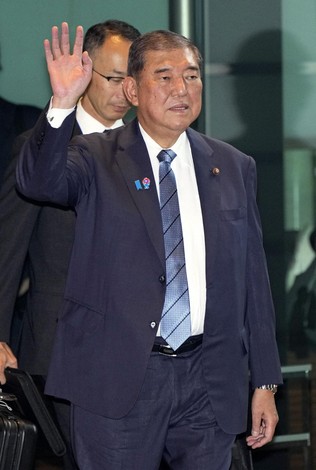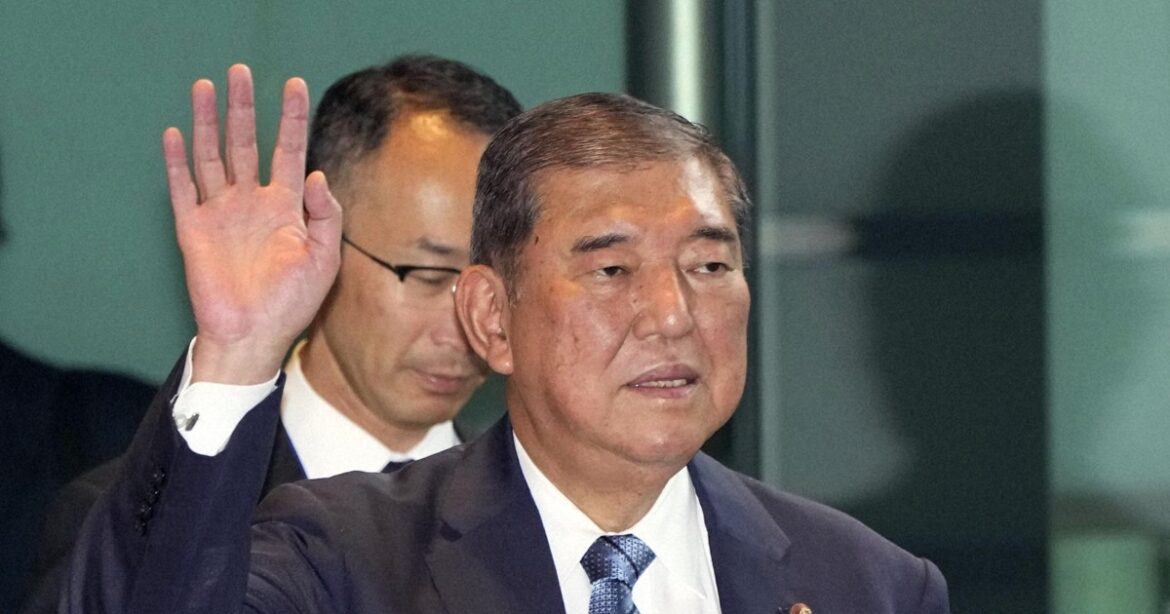
Prime Minister Shigeru Ishiba enters his office before leaving for Busan, South Korea, on Sept. 30, 2025. (Kyodo)
TOKYO (Kyodo) — Outgoing Japanese Prime Minister Shigeru Ishiba traveled to Busan on Tuesday to hold talks with South Korean President Lee Jae Myung as the two nations try to build on their improved relations.
Ishiba visited the grave of a Korean student who died in 2001 after being hit by a train in Tokyo when he and another man jumped onto the tracks in an attempt to rescue a Japanese man who had fallen off the platform. All three were killed.
“The importance of Japan-South Korea relations and Japan-South Korea-U.S. cooperation is growing more in the current strategic environment,” Ishiba told reporters before leaving Tokyo, apparently in reference to North Korea’s nuclear and missile development programs as well as China’s assertiveness in the region.
The prime minister added that he is prepared to have an open discussion with the president in the southern port city, regarding the issues their respective countries are facing, such as a sharp fall in population and the concentration of people in the capital.
The leaders will have their second meeting in as many months after the South Korean president chose Tokyo as the destination of his first overseas trip for bilateral talks since he took office in June.
In the summit in Tokyo in August, Ishiba and Lee agreed to develop bilateral relations steadily and in a “future-oriented” manner, while welcoming the practice of reciprocal trips implemented by their leaders.
Lee, a liberal who in the past took a firm stance on Japan over wartime and territorial issues, has spoken of the need for a pragmatic approach. This year marks the 60th anniversary of the normalization of diplomatic ties.
Relations had been on the mend under Lee’s predecessor Yoon Suk Yeol, who was ousted over his short-lived declaration of martial law last December, after hitting their lowest point in years during the administration of Moon Jae In, including over the issue of wartime labor compensation.


AloJapan.com